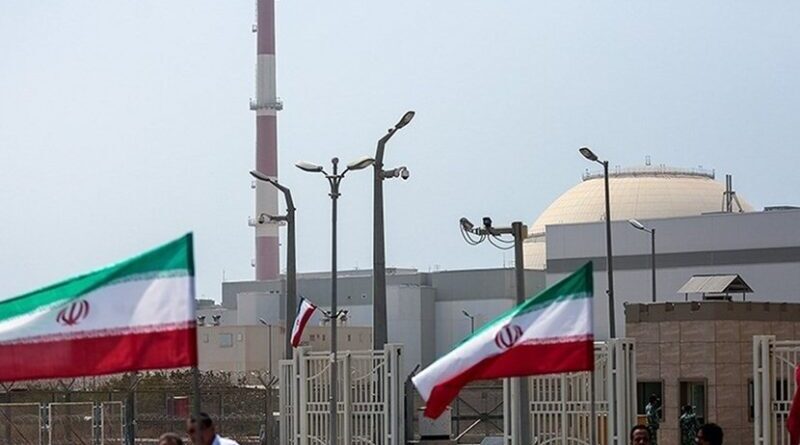Iran gives IAEA Notice Of Escalating Uranium Metal Work
By Arab News
Iran has given notice of concrete steps to produce uranium metal enriched to up to 20 percent purity for reactor fuel, the UN atomic watchdog said on Tuesday, describing a move that is likely to anger Western powers in talks to revive the Iran nuclear deal.
Iran has been in indirect talks with the United States since April to revive the 2015 deal, which former US President Donald Trump abandoned. The deal imposed curbs on Iran’s nuclear program in return for the lifting of sanctions, and after Trump withdrew, Iran began violating many of its restrictions.
Tehran has already produced a small amount of uranium metal this year that was not enriched. That is a breach of the deal, which bans all work on uranium metal since it can be used to make the core of a nuclear bomb.
Iran has outlined plans to produce enriched uranium metal, saying it is developing fuel for its Tehran Research Reactor, but Washington and its European allies dispute Tehran’s intentions and have called on it to stop.
“Today, Iran informed the Agency that UO2 (uranium oxide) enriched up to 20 percent U–235 would be shipped to the R&D laboratory at the Fuel Fabrication Plant in Esfahan, where it would be converted to UF4 (uranium tetrafluoride) and then to uranium metal enriched to 20 percent U–235, before using it to manufacture the fuel,” an International Atomic Energy Agency statement said.
Summarizing a report to its member states, the IAEA described the plan as a “multi-stage process,” suggesting it will take time before the enriched metal is produced.
The report is likely to increase tensions in the talks, which include the other parties to the 2015 deal. The talks adjourned on June 20 and a date for their resumption has not yet been set.
The US on Tuesday called Iran’s decision an “unfortunate step backwards” but said the window for diplomacy to allow both to resume compliance with the 2015 nuclear deal remained open.
“It is worrying that Iran chooses to escalate its non-performance of its (nuclear deal) commitments, especially with experiments that have value for nuclear weapons research. It’s another unfortunate step backwards for Iran, particularly when we for our part have demonstrated our sincere intention and willingness to return to the (deal),” US State Department spokesman Ned Price told reporters at a briefing.
“We continue to urge Iran to stop this brinksmanship, to return to Vienna prepared for real talks, and to be in a position to be prepared to finish the work that we have started in April,” he said.
Germany, France and Britain also voiced “grave concern” over the move by Iran that they say is a serious violation of its commitments under the 2015 nuclear deal with world powers, warning that it threatens the outcome of talks aimed at bringing the US back into the agreement.
Uranium metal can also be used for a nuclear bomb, and research on its production is specifically prohibited under the nuclear deal. The IAEA already said in February that its inspectors had confirmed that Iran has begun the production of uranium metal.
The three European powers’ foreign ministers issued a joint statement saying of Tehran’s latest step that “Iran has no credible civilian need for uranium metal (research and development) and production, which are a key step in the development of a nuclear weapon.”
They said it was “all the more concerning” given that no date has been set for the resumption of negotiations in Vienna, and that Iran has “significantly curtailed” IAEA access.
“We have repeatedly stressed that time is on no-one’s side,” the statement said. “With its latest steps, Iran is threatening a successful outcome to the Vienna talks despite the progress achieved in six rounds of negotiations to date.”
Bob Einhorn, a nonproliferation expert at the Brookings Institution think tank, said: “This is clearly an escalation — clearly another message by Iran that in the absence of any restoration of (the nuclear deal), they are going to continue ramping up their capability and their pressure.”

